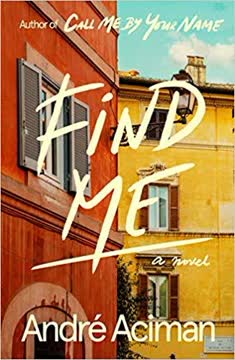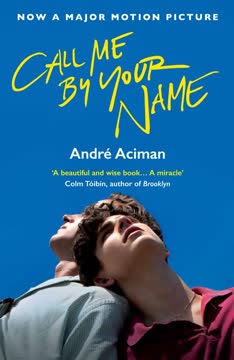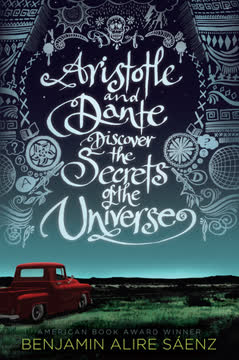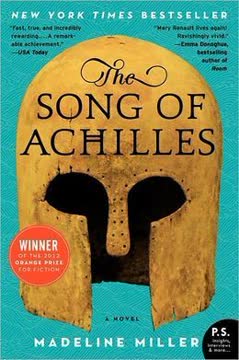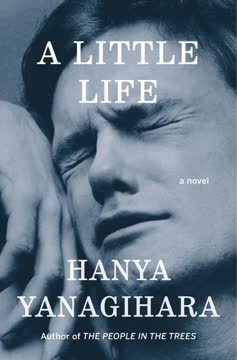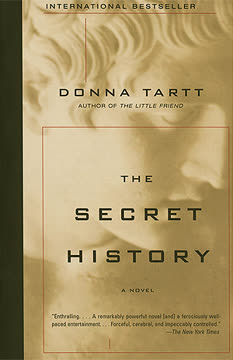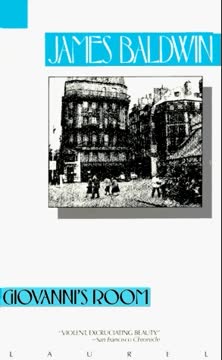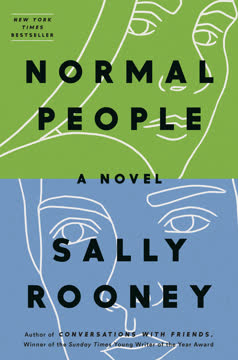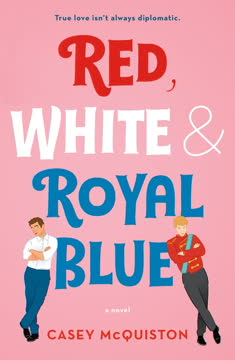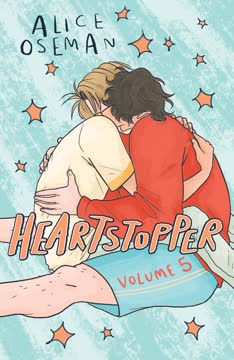Plot Summary
Strangers on a Train
Samuel, a professor, meets Miranda, a young American woman, on a train from Florence to Rome. Their conversation, initially awkward, quickly deepens as they share personal stories, vulnerabilities, and philosophies about love, loneliness, and the passage of time. Both are at transitional points in their lives—Samuel is visiting his son, Elio, while Miranda is caring for her ailing father. Their dialogue is marked by candor and mutual recognition of each other's emotional wounds, setting the stage for an unexpected intimacy.
Lunch with Miranda
When Samuel's plans with his son fall through, Miranda impulsively invites him to lunch at her father's apartment. Samuel hesitates but is drawn in by her warmth and the sense of possibility. The lunch is simple but meaningful, filled with playful banter, shared memories, and the subtle negotiation of boundaries. Miranda's relationship with her father is revealed as both loving and fraught, shaped by years of caregiving and the looming shadow of his mortality.
Vigils and Old Loves
Samuel and Miranda discuss the rituals he shares with his son—"vigils" through Rome, revisiting places tied to past loves and memories. These walks are both acts of remembrance and attempts to bridge generational gaps. Samuel confides about a brief, passionate affair from his youth, and Miranda reflects on her own failed relationships, revealing a pattern of emotional withdrawal and self-sabotage. Both characters are haunted by the people they've lost or never truly had.
Father, Daughter, Caregiver
At Miranda's father's home, the dynamic between father and daughter is explored in depth. Their banter is affectionate but edged with the pain of impending loss. Samuel observes the ways in which Miranda's identity is shaped by her caregiving role, her ambivalence about love, and her struggle to balance independence with attachment. The lunch becomes a microcosm of the larger themes of the novel: the interplay of intimacy, regret, and the desire for connection.
The Invitation Extended
After lunch, Miranda and Samuel wander Rome together, their bond deepening as they share more of their histories and vulnerabilities. Miranda's invitation to Samuel is not just to lunch, but to a new chapter in both their lives. They visit places from Samuel's past, and Miranda takes photographs, symbolically capturing moments that might otherwise slip away. The city becomes a backdrop for their tentative steps toward each other.
A Day in Rome
Samuel and Miranda spend the day together, visiting markets, buying food, and sharing stories. Their interactions are marked by a growing sense of ease and mutual understanding. They discuss art, music, and the meaning of happiness, each revealing the ways in which they have settled for less than they wanted in life. The day culminates in a sense of possibility, as both characters allow themselves to hope for something more.
The Spark of Intimacy
As evening falls, the emotional and physical tension between Samuel and Miranda comes to a head. They attend Samuel's lecture, then navigate the awkwardness of post-event socializing. When Miranda briefly disappears, Samuel fears she has left for good, only to find her waiting for him at his hotel. Their reunion is charged with relief and anticipation, and they finally give in to the desire that has been building between them.
The Night That Changes Everything
Samuel and Miranda spend the night together, shedding the layers of self-protection that have kept them isolated. Their lovemaking is both passionate and tender, marked by a willingness to share secrets and confront past wounds. They talk openly about their fears, desires, and the possibility of building a life together. The night represents a turning point for both, as they choose to embrace the unknown rather than retreat into old patterns.
Elio's Paris Encounter
In Paris, Samuel's son Elio attends a concert and meets Michel, an older man with a complicated past. Their initial conversation is tentative but quickly becomes intimate, as they bond over music, family histories, and the scars left by lost loves. Michel invites Elio to dinner, and their relationship develops over a series of encounters, each marked by a blend of hesitation and longing.
Michel's Secret Score
Michel reveals to Elio a secret from his family's past: a handwritten musical score given to his father by a mysterious figure named Léon during World War II. The score, a cadenza for a Mozart concerto, becomes a symbol of hidden histories, unspoken love, and the ways in which the past continues to shape the present. Elio is drawn into the mystery, using his musical expertise to decode the score's significance.
Uncovering Léon's Past
Elio and Michel embark on a quest to uncover the identity of Léon, tracing his connections to Michel's father and the broader history of Jews in wartime France. Their investigation leads them to old school records, photographs, and the realization that Léon was likely a Jewish musician who perished in the Holocaust. The search becomes a metaphor for the ways in which love, loss, and memory are intertwined across generations.
The Cadenza's Hidden Message
Elio deciphers the cadenza, discovering that it weaves together themes from Mozart, Beethoven, and the Jewish prayer Kol Nidre. The music becomes a coded message of love and survival, a way for Léon to reach across time and space to those who come after him. Elio promises to perform the cadenza in concert, fulfilling the legacy entrusted to him and honoring the lives that were interrupted by history.
Love Across Generations
The novel explores the ways in which love reverberates across generations—between parents and children, lovers and friends, the living and the dead. Samuel and Miranda, Elio and Michel, and the memory of Léon and Adrien are all linked by their longing for connection and their struggle to reconcile the past with the present. The characters grapple with the fear of repeating old mistakes, the hope of new beginnings, and the acceptance of life's impermanence.
Farewell Party in New York
In New York, Oliver (Elio's former lover) hosts a farewell party as he prepares to leave the city. Surrounded by friends, he is haunted by memories of Elio and the life they might have shared. The party becomes a meditation on regret, the passage of time, and the ways in which we construct screens—relationships, routines, distractions—to shield ourselves from the pain of what we have lost or never dared to pursue.
The Unlived Life
Oliver reflects on the choices that have shaped his life, the relationships that have ended, and the dreams that remain unfulfilled. He is visited by memories of Elio, and the music played at the party becomes a catalyst for longing and self-reckoning. The chapter is a poignant exploration of the tension between the lives we live and the lives we imagine, and the courage required to seek out what we truly want.
Reunion in Italy
After years apart, Elio and Oliver are finally reunited in Italy. Their initial awkwardness gives way to a rekindling of intimacy, as they confront the passage of time and the changes in their lives. The presence of Miranda and her son, Little Ollie, adds new layers to their relationship, as the boundaries between past and present, family and lover, blur and dissolve.
The Poseidonian Vigil
Elio and Oliver travel to Alexandria, where they reflect on the rituals that keep memory alive—the vigils, anniversaries, and acts of remembrance that connect them to their past and to each other. The story of the Poseidonians, who remember their Greek heritage once a year, becomes a metaphor for the persistence of love and identity in the face of change and loss.
Full Circle in Alexandria
In Alexandria, Elio and Oliver find a sense of closure and renewal. They visit the home of the poet Cavafy, contemplate the layers of history that shape their lives, and reaffirm their commitment to each other. The novel ends with a sense of hope and continuity, as the characters choose to live fully in the present while honoring the legacies of love, loss, and memory that have brought them together.
Characters
Samuel (Sami)
Samuel is a classics professor whose life is marked by intellectual achievement, emotional reserve, and a deep sense of longing. His relationships—with his son Elio, his ex-wife, and the women of his past—are characterized by both affection and distance. Samuel's encounter with Miranda on the train catalyzes a late-in-life awakening, as he allows himself to be vulnerable, to hope, and to embrace the possibility of new love. His journey is one of self-discovery, reconciliation with the past, and the courage to pursue happiness despite fear and regret.
Miranda
Miranda is a young American woman living in Italy, defined by her independence, wit, and emotional complexity. She is both caregiver and rebel, devoted to her ailing father yet resistant to the expectations placed upon her. Miranda's relationships are marked by ambivalence—she craves intimacy but fears entrapment, seeks connection but often withdraws. Her bond with Samuel is transformative, offering her a chance to break free from old patterns and to imagine a different future.
Elio
Elio, Samuel's son, is a talented musician whose life is shaped by the memory of his youthful romance with Oliver. Sensitive, introspective, and emotionally attuned, Elio struggles to move beyond the shadow of lost love. His relationship with Michel in Paris offers both solace and a mirror for his own desires and fears. Elio's journey is one of seeking connection, honoring the past, and learning to accept the complexities of love and identity.
Michel
Michel is an older Frenchman whose life is marked by loss, regret, and the search for meaning. His relationship with Elio is both a romance and a partnership in uncovering family secrets. Michel's inheritance of the mysterious cadenza becomes a metaphor for the burdens and gifts passed down through generations. He is both mentor and lover, offering Elio a glimpse of what it means to love and be loved across time and circumstance.
Miranda's Father
Miranda's father is a retired professor whose declining health has made him dependent on his daughter. Their relationship is marked by love, frustration, and the unspoken knowledge that time is running out. He serves as a reminder of the inevitability of loss and the importance of cherishing the moments we have with those we love.
Oliver
Oliver is a professor in America, married with children, but perpetually haunted by his past with Elio. His chapters are suffused with longing, self-reproach, and the ache of the unlived life. Oliver's journey is one of reckoning with the choices he has made, the relationships he has sacrificed, and the hope of redemption through reunion.
Little Ollie
The young son of Miranda, named after Oliver, represents the possibility of renewal and the enduring power of love. His presence in the story bridges the gap between past and present, offering both Elio and Oliver a chance to create new memories and to heal old wounds.
Michel's Father (Adrien)
Adrien's life is defined by a mysterious break from music, a secret relationship with Léon, and the legacy he passes on to Michel. His story is one of hidden love, the trauma of war, and the ways in which the past continues to shape the lives of those who come after.
Léon/Ariel Waldstein
Léon, also known as Ariel Waldstein, is a Jewish musician whose life and love are cut short by the Holocaust. His cadenza, left as a legacy to Adrien and later to Elio, becomes a vessel for memory, loss, and the hope of transcendence through art.
Micol
Micol is Samuel's former partner, now living her own life but still connected to him through shared history and family. Her presence in the story underscores the themes of change, adaptation, and the enduring bonds that persist even after relationships end.
Plot Devices
Intergenerational Echoes
The novel's structure weaves together the stories of Samuel, Miranda, Elio, Michel, and Oliver, showing how the choices, regrets, and passions of one generation reverberate in the lives of the next. The recurring motif of "vigils"—rituals of remembrance—serves as a narrative anchor, linking past and present, parent and child, lover and beloved.
Music as Metaphor
The cadenza, a musical improvisation, becomes a central symbol for the novel's exploration of unfinished business, hidden messages, and the possibility of renewal. Music is both a literal and figurative language through which characters express longing, grief, and hope. The act of performing, listening, and decoding music mirrors the characters' efforts to make sense of their own lives.
Letters, Artifacts, and Hidden Histories
The mysterious score, old photographs, and family heirlooms serve as plot devices that propel the characters' quests for understanding. These artifacts are imbued with emotional significance, offering clues to the past and opportunities for connection in the present.
Parallel Relationships
The novel juxtaposes the relationships of Samuel and Miranda, Elio and Michel, and Elio and Oliver, drawing out the similarities and differences in their experiences of love, loss, and reconciliation. These parallel narratives allow for a nuanced exploration of the ways in which individuals navigate the tension between desire and fear, hope and regret.
Time and the Unlived Life
The characters are acutely aware of the ways in which time shapes their lives—through aging, memory, and the choices they make or avoid. The motif of the "unlived life" recurs throughout the novel, prompting characters to confront what they have lost, what they still desire, and what it means to begin again.
Analysis
"Find Me" is a deeply introspective novel that explores the ways in which love, regret, and the passage of time shape our lives. Through its interwoven narratives, the book examines the tension between the lives we live and the lives we imagine, the pain of loss and the hope of renewal. Aciman suggests that true intimacy requires vulnerability, honesty, and the willingness to confront our own fears and failures. The novel's structure—moving from chance encounters to long-awaited reunions—mirrors the unpredictability of life itself, while its focus on music, art, and ritual underscores the importance of creating meaning in the face of impermanence. Ultimately, "Find Me" is a celebration of the human capacity for connection, forgiveness, and transformation, urging readers to seek out the moments of beauty and truth that make life worth living, even as time slips away.
Last updated:
FAQ
Synopsis & Basic Details
What is Find Me about?
- A multi-generational journey: Find Me explores the intertwined lives of Samuel, his son Elio, and their respective new loves, Miranda and Michel, as they navigate themes of love, longing, memory, and the passage of time across Italy, Paris, and New York. The narrative delves into the unexpected connections that reshape their understanding of self and desire.
- The pursuit of an "unlived life": The novel centers on characters who, despite their established lives, feel a profound sense of something missed or unfulfilled, prompting them to seek out new experiences and connections that challenge their past choices and identities. It's a story about second chances and the courage to embrace them.
- Love's enduring echoes: Through a series of intimate encounters and profound reflections, the book examines how past loves and family legacies continue to influence present desires, suggesting that true connection transcends time and conventional boundaries. It's a poignant exploration of the human need to "find" oneself through others.
Why should I read Find Me?
- Deep emotional resonance: Readers seeking a profound exploration of human connection, regret, and the transformative power of unexpected love will find Find Me deeply moving. The novel delves into the characters' inner lives with remarkable sensitivity, making their emotional journeys palpable.
- Rich philosophical inquiry: Aciman weaves philosophical meditations on time, memory, and identity into the narrative, inviting readers to ponder universal questions about what it means to live fully and authentically. It's a book that stays with you, prompting introspection long after you've finished reading.
- Exquisite prose and atmosphere: Aciman's signature lyrical prose, vivid sensory details, and evocative descriptions of European cities create an immersive reading experience. The novel's atmosphere, from the bustling streets of Rome to the quiet melancholy of a French country house, is as much a character as the people themselves.
What is the background of Find Me?
- Post-WWII European context: The narrative subtly incorporates historical elements, particularly through Michel's family history and the mystery of Léon/Ariel Waldstein, touching upon the lingering shadows of World War II and the Holocaust. This historical backdrop adds layers of meaning to themes of memory, loss, and the search for identity.
- Geographical and cultural tapestry: The story unfolds across diverse European settings—Florence, Rome, Paris, and a French country house—each imbued with its own cultural nuances and historical weight. Alexandria, with its layered past, serves as a poignant final setting, emphasizing the cyclical nature of history and personal journeys.
- Intertextual and artistic allusions: The novel is rich with references to classical music (Mozart, Beethoven, Bach), literature (Dostoyevsky, Edith Wharton, Cavafy), and art, which deepen its thematic complexity and provide intellectual texture. These allusions are integral to the characters' self-understanding and their attempts to articulate their experiences.
What are the most memorable quotes in Find Me?
- "We only want those we can't have. It's those we lost or who never knew we existed who leave their mark. The others barely echo.": This quote, spoken by Samuel to Miranda, encapsulates a central theme of longing for the unattainable or lost, highlighting how absence can shape desire more powerfully than presence. It speaks to the enduring impact of unfulfilled connections in Find Me analysis.
- "Because there is death. Because death, contrary to what everyone tells you, is not part of life. Death is God's great blunder, and sunset and dawn are how he blushes for shame and asks our forgiveness each and every day.": Miranda's father's profound and poignant reflection on death reveals a deep philosophical undercurrent in the novel, emphasizing the human struggle against mortality and the search for meaning in its face. This quote is key to understanding the themes in Find Me.
- "What good is the map if the end's already known? What good is landfall if the boat stalls? What good is a key if the door's wide open?": Elio's translation of the Portuguese song lyrics to Michel beautifully articulates the novel's exploration of fate versus free will, and the paradox of knowing too much or too little about one's path. It questions the value of certainty in life's journey.
- "You are the one card I was almost cheated of in this lifetime.": Michel's heartfelt confession to Elio underscores the profound sense of gratitude and near-miss that defines their connection, emphasizing the preciousness of finding a deep bond later in life. This quote highlights the unique Elio Michel relationship and its significance.
What writing style, narrative choices, and literary techniques does André Aciman use?
- Stream-of-consciousness and internal monologue: Aciman frequently employs lengthy, introspective passages that delve deep into the characters' thoughts, desires, and anxieties, often blurring the lines between dialogue and internal reflection. This technique provides intimate access to Samuel's motivations and the psychological complexities of all characters.
- Sensory immersion and evocative detail: The prose is rich with sensory descriptions—the smell of cat litter in a lobby, the taste of persimmons, the feel of worn boots—creating a vivid and immersive atmosphere that grounds the philosophical musings in tangible reality. This attention to detail enhances the emotional landscape of the novel.
- Repetition and leitmotifs: Aciman uses recurring phrases, objects, and scenarios (e.g., "vigils," "prettified," the "marriage canard," the "wrong ferryboat") as leitmotifs that echo across different characters' narratives, reinforcing thematic connections and the cyclical nature of human experience. This stylistic choice contributes to the novel's unique rhythm and depth.
Hidden Details & Subtle Connections
What are some minor details that add significant meaning?
- Miranda's "wild, untamed boots": Samuel's observation of Miranda's "weatherworn" hiking boots and "men's socks" (Tempo) subtly hints at her independent, rugged nature and her resistance to conventional femininity, contrasting with her expensive Prada jacket and smooth ankles. This detail foreshadows her unconventional approach to relationships and her desire for authenticity over pretense, a key aspect of Miranda character analysis.
- The "pickle dish" reference: Samuel's casual mention of his marriage ending with "one of us broke the pickle dish" (Tempo), an allusion to Edith Wharton's The Age of Innocence, subtly foreshadows the quiet, almost imperceptible decay of his marriage. It suggests a relationship that withered not from dramatic conflict, but from a slow, unspoken erosion of intimacy, connecting to broader themes in Find Me about the "unlived life."
- Michel's father's "ascot" and "creased jeans": The description of Michel's father wearing a "colorful ascot" and "creased to a crisp" blue jeans (Cadenza) despite his age and declining health, reveals a man clinging to a youthful, dapper image. This subtle detail highlights his underlying vanity and perhaps a denial of his own mortality, mirroring the characters' broader struggles with aging and self-perception.
What are some subtle foreshadowing and callbacks?
- Miranda's "pfffff, I'm gone": Miranda's casual description of how she leaves relationships ("pfffff, I'm gone and immediately find someone else," Tempo) subtly foreshadows Samuel's later fear that she has "bolted" from him after his lecture (Tempo). This callback emphasizes her pattern of emotional withdrawal and the anxiety it creates in those who connect with her, a crucial element in Miranda character analysis.
- The "wrong ferryboat" metaphor: Samuel's reflection on taking the "wrong ferryboat" in life (Tempo) is echoed in Michel's father's dissertation parable about the pilot's wife living on "two banks, with neither being the right one" (Tempo). This recurring metaphor subtly links Samuel's personal regrets to a universal human experience of missed opportunities and parallel lives, deepening the Find Me symbolism of choices and destiny.
- The "Kol Nidre" melody: The discovery of the Jewish prayer "Kol Nidre" hidden within Léon's cadenza (Cadenza) is subtly foreshadowed by the recurring "Jewish thread" mentioned in Michel's family history and Elio's great-uncles' fate. This musical motif becomes a powerful symbol of hidden identity, resilience, and the enduring presence of the past, central to Find Me symbolism and the Léon/Ariel Waldstein explained.
What are some unexpected character connections?
- Samuel and Miranda's shared "glumness": Their initial connection on the train is sparked by Samuel's observation of Miranda's "glum" expression, which she attributes to "thinking" and her father's illness. This shared emotional state, a quiet melancholy, immediately establishes a deep, unspoken understanding between them, transcending their age difference and setting the stage for their rapid intimacy.
- Elio and Michel's parallel father figures: Both Elio and Michel have fathers who were pianists (or had a deep connection to music) but pursued other careers (philologist/lawyer). This parallel creates an immediate bond and shared understanding between them, as they both grapple with their fathers' legacies and their own artistic paths. It highlights the intergenerational echoes of passion and compromise.
- Oliver's naming of Little Ollie: The revelation that Miranda's son is named "Oliver" (Da Capo) creates a profound and unexpected connection, symbolizing the enduring impact of Elio and Oliver's past love. It suggests that their bond, though seemingly broken, has subtly shaped new lives and futures, embodying the novel's theme of love's persistence across generations.
Who are the most significant supporting characters?
- Miranda's Father: He serves as a poignant symbol of aging, mortality, and the complexities of familial love. His witty banter and philosophical musings, particularly on time and death, provide a foil to Miranda's restlessness and Samuel's introspection, enriching the themes in Find Me about life's impermanence.
- Léon/Ariel Waldstein: Though never physically present, Léon is a pivotal character whose hidden musical score and tragic fate drive a significant portion of Elio and Michel's narrative. He embodies the themes of lost history, hidden identity, and the power of art to transcend suffering, making him central to Find Me symbolism and the novel's historical depth.
- Oliver's Sons: While not extensively developed, Oliver's sons represent the life he built after Elio, and their existence underscores the choices and compromises he made. Their presence, particularly in the "Da Capo" section, highlights the bittersweet reality of his "unlived life" with Elio and the enduring impact of past decisions.
Psychological, Emotional, & Relational Analysis
What are some unspoken motivations of the characters?
- Samuel's yearning for lost youth: Beyond seeking connection, Samuel is subtly motivated by a desire to reclaim the vibrancy and spontaneity of his younger self, particularly evident in his attraction to Miranda's uninhibited nature and his fantasy of a "younger man's fantasy" (Tempo). This unspoken longing drives his willingness to embrace a rapid, unconventional romance.
- Miranda's fear of emotional entrapment: Miranda's tendency to "blow up" bridges and disappear from relationships (Tempo) stems from a deep-seated fear of being consumed or defined by another person, a psychological defense mechanism against vulnerability. Her candidness with strangers, paradoxically, allows her to express truths she cannot share with those closer to her.
- Michel's need for paternal validation: Michel's relentless pursuit of Léon's identity and the meaning of the cadenza is driven by an unspoken desire to understand and connect with his enigmatic father, Adrien. This quest is a form of posthumous reconciliation, seeking validation and a deeper understanding of his own identity through his father's hidden life.
What psychological complexities do the characters exhibit?
- Samuel's self-deception and denial: Samuel often rationalizes his feelings or actions, such as his initial "grumpy thing" on the train being a "sham" (Da Capo), or his claim that his past love "Miss Margutta" didn't hurt him. This self-deception reveals a psychological defense mechanism against confronting deeper emotional wounds and the true extent of his loneliness.
- Miranda's paradoxical intimacy: Miranda exhibits a complex push-pull dynamic: she craves deep connection ("I don't want to stop knowing you," Tempo) yet simultaneously fears it, leading her to sabotage relationships and prefer the fleeting intimacy of strangers. Her "unbending" nature masks a profound vulnerability and a fear of being hurt, as explored in Miranda character analysis.
- Elio's "autonomous me": Elio confesses that after an "instant of passion, I always fall back to being the autonomous me" (Cadenza), revealing a deep-seated psychological need for independence that has hindered long-term relationships. This complexity explains his lingering attachment to Oliver, who represents a unique exception to this pattern.
What are the major emotional turning points?
- Samuel and Miranda's first kiss in the lobby: The kiss in Samuel's old apartment lobby (Tempo) is a pivotal emotional turning point, representing a decisive break from his "dead man's life" and a full embrace of spontaneous desire. It's a moment where past regrets are momentarily eclipsed by the raw, immediate reality of connection, signifying a profound shift in Samuel's motivations.
- Elio and Michel's shared shower: The shower scene (Cadenza) is a moment of profound vulnerability and intimacy, where Michel's gentle care and Elio's willingness to surrender control lead to a deep emotional and physical bond. It symbolizes a shedding of inhibitions and a mutual trust that transcends their initial awkwardness, marking a significant evolution in the Elio Michel relationship.
- Oliver's realization at his farewell party: Oliver's internal monologue during his party (Capriccio), where he acknowledges his "unlived life" and the "screens" he's built, marks a crucial emotional turning point. This moment of self-reckoning, fueled by music and memory, propels him towards seeking reunion with Elio, highlighting Oliver's regret and desire for authenticity.
How do relationship dynamics evolve?
- Samuel and Miranda: From strangers to soulmates: Their relationship rapidly escalates from a chance encounter on a train to a profound, immediate intimacy, challenging conventional notions of courtship. Their candidness and mutual recognition of each other's emotional landscapes allow for an accelerated bond, suggesting a "love at first sight" that is more about finding a kindred spirit than a conventional partner.
- Elio and Michel: A cautious, intellectual dance: Their dynamic is characterized by a slower, more hesitant unfolding, marked by intellectual sparring and shared vulnerability over family histories and music. Michel's initial reserve and Elio's "autonomous" nature gradually give way to a deep, tender connection built on mutual respect and a shared quest for meaning, evolving into a profound mentorship and romance.
- Elio and Oliver: Rekindling a foundational love: Their reunion in "Da Capo" is initially fraught with awkwardness and the weight of two decades of separation. However, their shared history and the enduring depth of their original bond allow them to quickly shed these layers, demonstrating that some connections, once truly forged, can withstand the test of time and life's detours, leading to a powerful sense of coming full circle in Alexandria.
Interpretation & Debate
Which parts of the story remain ambiguous or open-ended?
- The long-term future of the relationships: While the novel ends with moments of reunion and renewed commitment, the long-term viability of Samuel and Miranda's, and Elio and Oliver's relationships remains open to interpretation. The characters acknowledge the challenges of age gaps and past patterns, leaving readers to ponder whether these new beginnings will truly last.
- The exact nature of Adrien and Léon's relationship: The book strongly implies a deep, possibly romantic, bond between Michel's father, Adrien, and Léon/Ariel Waldstein, but it never explicitly confirms it. This ambiguity allows for a broader interpretation of their connection as a profound friendship, a hidden love, or a complex mix, reflecting the unspoken realities of their historical context.
- The "truth" of the "unlived life": The concept of the "unlived life" is a recurring motif, but its precise meaning and whether it can truly be "lived" or "redeemed" remains ambiguous. Characters grapple with regret and missed opportunities, but the novel doesn't offer a definitive answer on whether one can fully escape the shadows of past choices or truly "start over."
What are some debatable, controversial scenes or moments in Find Me?
- The significant age gaps in relationships: The novel features prominent age differences (Samuel and Miranda, Elio and Michel), which some readers might find controversial or unrealistic in their rapid development. This challenges societal norms around age and love, prompting debate on whether these relationships are truly equitable or driven by other, perhaps less healthy, motivations.
- The "slapping" scene between Elio and Michel: Elio's request for Michel to slap him, and Michel's subsequent compliance, is a moment that can be interpreted as either a raw, intense expression of intimacy and trust, or as a disturbing display of power dynamics and self-harm. This scene invites strong reader reactions and differing interpretations of its psychological significance.
- The rapid intimacy and lack of conventional courtship: The speed with which Samuel and Miranda, and later Elio and Michel, achieve profound intimacy and physical connection, often within hours of meeting, can be seen as either a romantic idealization of instant soulmate recognition or as an unrealistic portrayal of relationship development. This challenges traditional narrative structures of romance.
Find Me Ending Explained: How It Ends & What It Means
- A cyclical return to beginnings ("Da Capo"): The final section, "Da Capo" (meaning "from the beginning" in music), sees Elio and Oliver reunited in Italy and then Alexandria, mirroring their initial connection. This ending suggests that love, like music, is cyclical, with themes recurring and evolving over time. It implies that true connections are not lost but merely await their "return."
- The triumph of enduring love and memory: Despite years of separation and the lives they built apart, Elio and Oliver find their way back to each other, reaffirming their profound bond. The naming of Miranda's son "Oliver" symbolizes the enduring legacy of their love, suggesting that even "unlived" lives can leave a lasting imprint and find a form of continuation. This offers a hopeful Find Me ending explained.
- Acceptance of life's imperfections and layers: The ending doesn't present a perfect, fairytale resolution but rather an acceptance of life's complexities—the presence of family, the echoes of past relationships, and the passage of time. It emphasizes that finding happiness often involves integrating all layers of one's life, rather than erasing the past, and that true "finding" is an ongoing process of self-discovery and connection.
Review Summary
Find Me received mixed reviews, with many readers expressing disappointment. Critics felt the book lacked focus on Elio and Oliver's relationship, instead dedicating large portions to other characters and storylines. Some praised Aciman's writing style and moments of poignant romance, while others found the dialogue pretentious and the plot disjointed. Many fans of Call Me By Your Name felt the sequel was unnecessary and failed to capture the magic of the original. The brief sections featuring Elio and Oliver left readers wanting more.
Call Me By Your Name Series
Similar Books
Download PDF
Download EPUB
.epub digital book format is ideal for reading ebooks on phones, tablets, and e-readers.
